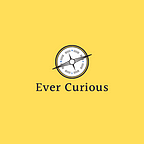Stop Trying To Answer The Big Questions
Instead, try to love and live the questions themselves
In Letters to a Young Poet, Rainer Maria Rilke advises dear Mr Kappus “to be patient towards all that is unresolved in [his] heart and to try to love the questions themselves like locked rooms, like books written in a foreign tongue.”
He continued, “Do not now strive to uncover answers: they cannot be given you because you have not been able to live them. And what matters is to live everything. Live the questions for now. Perhaps then you will gradually, without noticing it, live your way into the answer.”
So when we ask late at night, “What on earth is the meaning of life? What is love? What is trust? How can I become the type of person I want to be? And why, oh why do I keep repeating these damn same mistakes?” When we ask the big questions, Rilke advises us to live them, to even love them. And to live the questions means to hold them in your heart as you move through life. It means to accept that an answer will not be given immediately, and though the incentive will be to give up in despair, to raise our hands in frustration, to rest our aching bodies, we must go on.
We must live, gain experiences which accumulates into a growing catalogue and knowledge upon which we can draw on, connect and create better ideas. But the truth is, many of us who ask these big questions are young and we expect a magic shortcut at 16 or 21. The fact is, billions of people have gone before us clawing for the same answers.
The simple fact is that so many young people, myself included, will keep trying to think our way to an answer: from our sofas, armchairs, desks and beds. But life cannot be simplified to mere thought, to intellectual exercises. It’s a lot more messy than that. Likewise, it can seem as if everything is geared towards the short-term: we want answers and we want them now. Our brains have even evolved to conserve energy for the short-term. Societal pressures point us towards immediate gratification in the form of dopamine rushes from reels on TikTok, fast food and social media. The problem is that this type of thinking makes us feel incredibly uneasy when we don’t find answers and find them fast.
The way I like to look at it is mileage. I just simply do not have enough mileage yet to fully answer these questions about love, meaning, society. I am foolishly trying to create an all-encompassing philosophy on things that I have asked about but have not lived through. It’s all good to research the questions, read about them, watch videos with solutions. It’s one thing to know something intellectually. It’s another to experience it, to feel it. We are emotional not intellectual creatures. We neglect the wisdom of ages past because we want to see it for ourselves, with our own eyes.
We want to feel it.
Asking questions before living them is like trying to learn how to drive by reading a book on driving or trying to predict exactly what will happen in an science experiment before actually completing it. Thinking, deliberating, and articulating are only one part of the puzzle.
Of course, there must be somewhat of a balance between knowledge and living. Knowledge may very well be the seeds of which real-life experiences nurture and develop thus allowing us to answer the questions themselves. It is all interconnected meaning that both are important, but that living the questions themselves is absolutely necessary.
In my second year of university, I realised this. I realise that I needed to live, that I was done with the theoretical and abstract. I was done spending my evenings trying to articulate answers to big questions. I needed the painful, dirty, confusing but rich reality on which I could set a true foundation. I needed the obstacles that I could be fully present towards, the overwhelming kindness of friends and the hope that came along with it. I needed to see the knowledge I had accumulated in action. I needed, in order to write with any authenticity, to see what stood up to the test, and what did not. I needed, most importantly, to accept my own weaknesses, my own insecurities, my own fears about the world. And in order to live, I needed to get off the computer, get out of my own head and into the real world.
It’s time for us to stop looking for the theoretical and start implementing what we have learnt in action.
